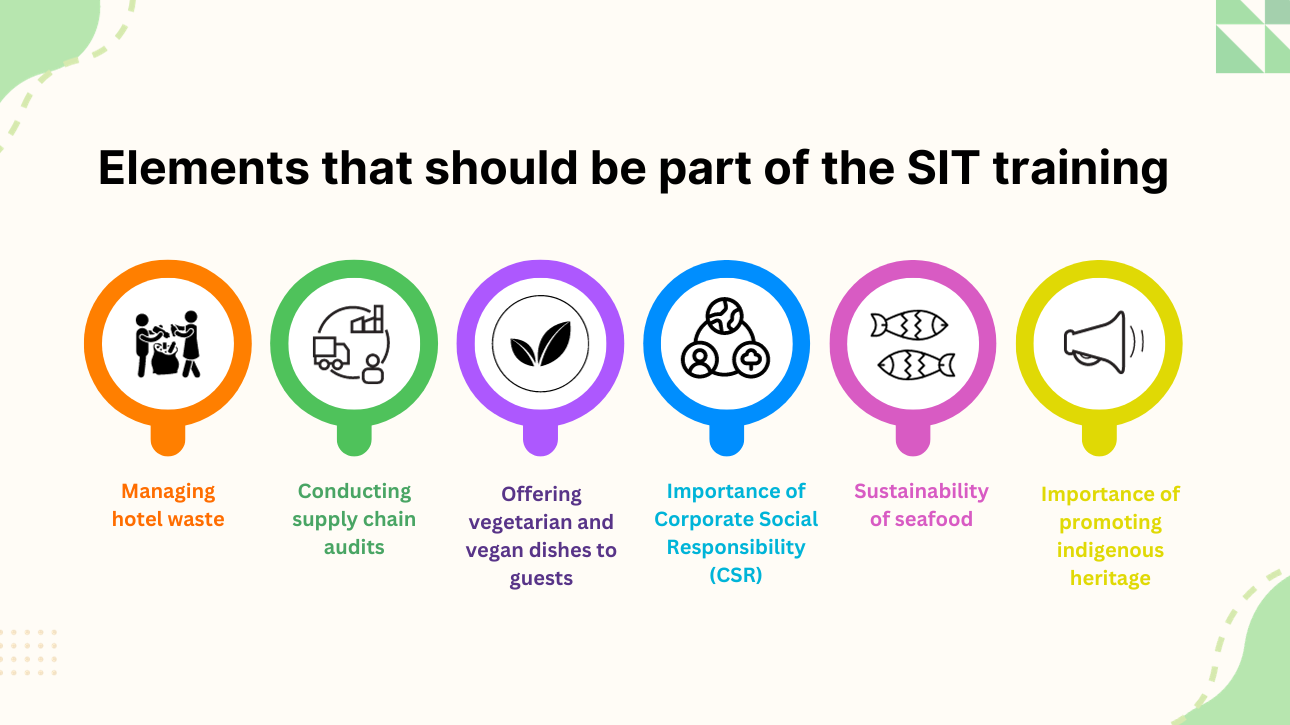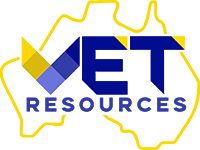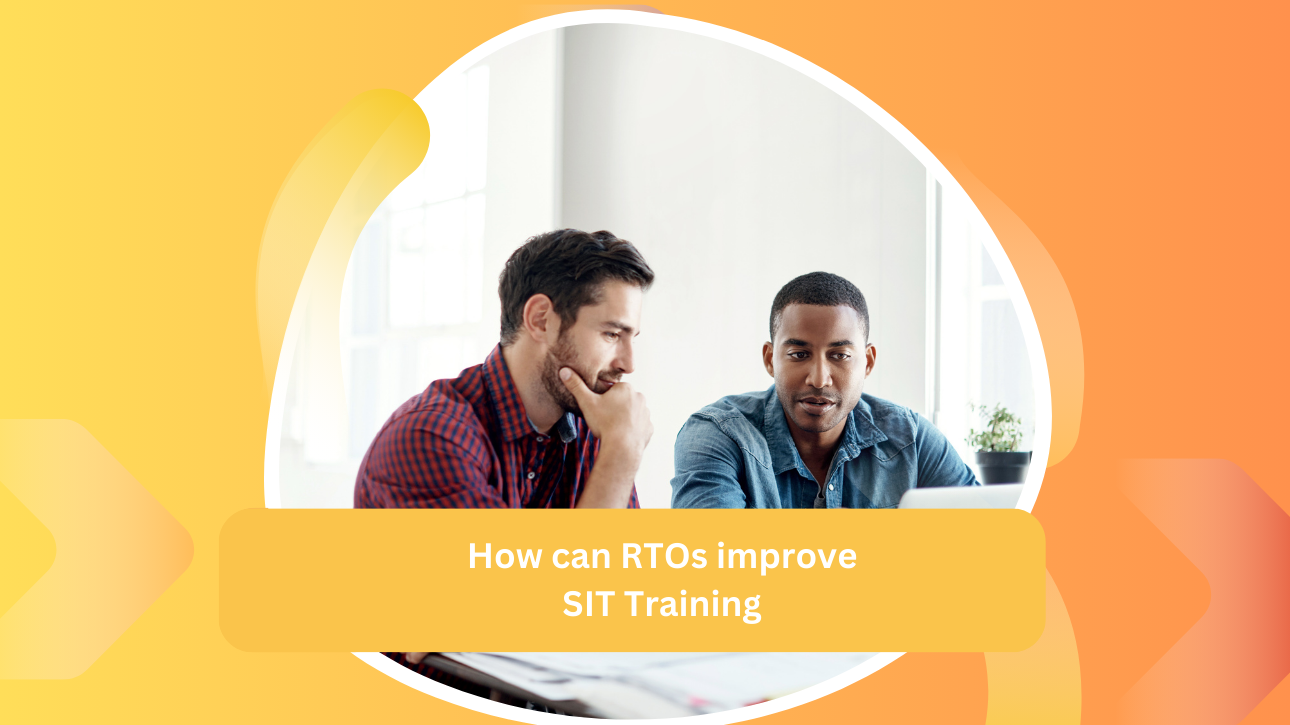Are you a training provider for the SIT training package? Then you must agree that the SIT training package is relevant to you because it provides you with a framework for delivering high-quality training in the tourism, travel, and hospitality industry.
So, how can you make the SIT training even more efficient for your students?
In this blog, “How can RTOs improve SIT training?” we are going to discuss the important element of training. Let’s dive in.
But first a brief introduction of the SIT training .
What is SIT training

SIT training is a type of vocational education and training (VET) that prepares students for careers in the tourism, travel, and hospitality industry. This includes careers in areas such as:

- Tourism management and operations
- Travel agency management
- Hospitality management
- Event management
- Tourism marketing
- Travel and tourism guiding
- Airline operations
- Food and beverage service
- Accommodation services
- Visitor attractions management
- Tourism planning and development
- Indigenous tourism
- Sustainable tourism
What are the essential components of the SIT training
Being the training organisation, it is your responsibility to provide efficient training to your learners. To achieve that make sure your training has the following essential components.
- The SIT training package must always be compliant with ASQA standards. Otherwise, your learners may not receive the training they need.
- Your RTO should always provide the training resource solutions and support your learners may need in their course of training.
- When you are developing or contextualising the learner resources for the includes everything the students need to succeed in the tourism, travel, and hospitality industry.
- The that you will conduct should be fair and reliable so that you are confident that students have all the necessary skills and knowledge of SIT.
- The training package, RPL kit and other study materials like class activity books must be of high quality. Ensure the quality of them with a quality assurance system.
- Since students will be joining the workforce after they get their qualifications make sure your training is relevant to the current industry standards and trends.
Elements that should be part of the SIT training

The hospitality industry has a significant impact on the environment and society. So, SIT training from your RTO should prepare students for sustainability and social responsibility. These include topics such as:
- Managing hotel waste. Introduce your students to recycling and composting. Train them in various ways to reduce hotel waste. You can also invite guest speakers from the hotel industry to talk about their experiences. This will prepare students to handle waste in their future workplace.
- Conducting supply chain audits. Students should learn about supply chain audits. Supply chain audits ensure that the products they are purchasing are produced in a sustainable and ethical manner. You should include supply chain audits in your curriculum.
- Offering vegetarian and vegan dishes to guests. Students should learn about plant-based menu items that help in reducing the climate change impact of food. This will give your students an upper hand at their workplace.
- Teaching the importance of Corporate Social Responsibility (CSR). Students should learn about different ways to implement CSR initiatives in their workplace through their SIT training.
- Sustainability of seafood. This is important for your students because the seafood industry is facing several challenges like climate change and pollution. Teaching students about seafood will empower them to make informed choices and promote sustainable seafood management.
- Students of your RTO should also learn about the importance of promoting indigenous heritage in the tourism industry. They will be able to collaborate with local indigenous communities bringing better opportunities for everyone involved.
Conclusion
The SIT training package provides a valuable framework for your RTOs to deliver high-quality training in the tourism, travel, and hospitality industries. Ensure that your training is compliant with ASQA standards, provide the necessary resources and support, develop contextualised learning resources, conduct fair and reliable assessments, and use high-quality training materials, to help your students to succeed in the industry.
In addition to the essential components of the SIT training package, you should also consider including topics such as sustainability and social responsibility in your training. This will help to prepare your students for the challenges and opportunities that they will face in the workplace.
Are you an RTO looking for quality RTO resources for SIT training? Look no further as VET Resources has the best resources for you. We also offer free RTO consultation for RTOs. For more information contact us here.
FAQs
Q.1. What are the benefits of studying SIT training?
A.1. SIT training provides students with the skills and knowledge they need to pursue careers in a variety of tourism, travel, and hospitality industries. It can also help students to develop their personal and professional skills, such as teamwork, communication, and problem-solving.
Q.2. What are some of the essential components of the SIT training package?
A.2. Some of the essential components of the SIT training package include:
- Compliance with ASQA standards
- Provision of training resources and support
- Development of contextualised learning resources
- Fair and reliable assessments
- High-quality training materials
Q.3. How can I find quality SIT training resources to provide SIT training?
A.3. When choosing SIT training resources to provide SIT training, it is important to consider the following factors:
- Accreditation with ASQA
- Reputation and track record
- Quality of training materials and resources
Suggested Read: What is the Process of Course Renewal for RTOs
Disclaimer:
The information presented on the VET Resources blog is for general guidance only. While we strive for accuracy, we cannot guarantee the completeness or timeliness of the information. VET Resources is not responsible for any errors or omissions, or for the results obtained from the use of this information. Always consult a professional for advice tailored to your circumstances.






